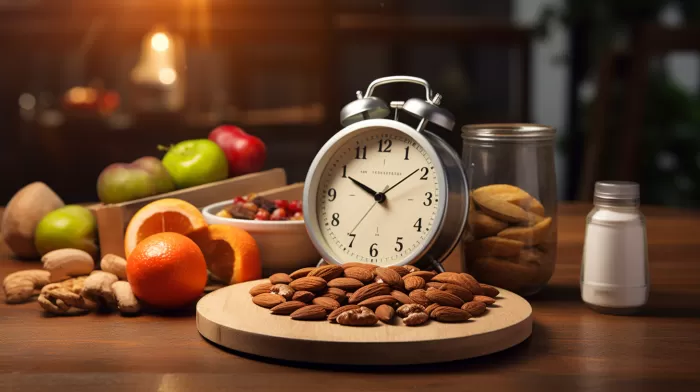When it comes to weight loss, snacking can be a double-edged sword. To help you avoid weight-loss sabotage, researchers at the Fred Hutchinson Cancer Research Center have discovered that the timing of your snack can significantly affect your dieting efforts. The study found that snacking between breakfast and lunch can potentially ruin your weight loss plan, while having a healthy snack in the hours before dinner can actually assist your weight loss journey.
It’s all about the timing
The researchers reported that the reason for this seemingly counterproductive habit of snacking in the late morning might be due to the relatively short period of time between breakfast and lunch. This could indicate that people snack during this time for fun or out of boredom, rather than out of genuine hunger.
This can be problematic for a few reasons. First of all, snacking out of boredom or for fun can lead to mindless eating and overindulgence. In these situations, you might not be paying attention to portion sizes or calorie content, and both of these factors can greatly impact your weight loss goals.
Secondly, snacking too close to your next meal can lead to reduced hunger at mealtime. This might sound like a good thing for weight loss, but it can backfire when hunger inevitably strikes again later in the day. When you’re ravenous, you’re more likely to make unhealthy food choices and overindulge.
Snacking smart in the afternoon
On the other hand, having a piece of fruit or a handful of nuts during the hours before dinner can lead to a higher fiber intake and help you make better choices during your evening meal. The researchers found that snacking in the afternoon is much more effective in staving off hunger and preventing overeating at dinner.
Lead researcher Anne McTiernan, M.D., Ph.D., explained the importance of understanding your body’s hunger cues: “Snacking could be part of a dieter’s toolkit if they’re eating in response to true hunger. Individuals should determine if they experience long intervals — such as more than five hours — between meals.”
So if you’re someone who often feels hungry in the afternoon, make sure to embrace healthy snacking as part of your weight loss strategy. This could mean incorporating more fiber-rich foods like fruits, vegetables, and nuts into your diet, as these types of snacks can help you feel fuller for longer.
Making the most of your snacks
The researchers noted that 97% of Americans snack, with most popular choices being potato chips, pretzels, nuts, sweets, and fruit. To ensure your snacks are helping, instead of hindering, your weight loss goals, consider the following tips:
- Swap out unhealthy options for whole, unprocessed foods. Choose fresh fruits, veggies, and nuts over processed snack foods like chips or cookies.
-
Pay attention to portion sizes. Overindulging in even healthy snacks can add up, so measure out your portions before you start snacking.
-
Listen to your body. Snacking can be beneficial when you’re genuinely hungry, but try to avoid mindless eating. Recognize when you’re snacking out of boredom or stress and address the root cause instead.
-
Time your snacks strategically. As the research suggests, snacking between breakfast and lunch may not be the best time for weight loss. However, a well-timed afternoon snack can prevent overeating at dinner and keep your hunger at bay.
In conclusion, while snacking can be a beneficial tool in your weight loss journey, it’s all about the timing and the choices you make. Opt for healthier options and monitor your snacking habits to ensure you’re eating out of genuine hunger, not boredom or stress. Incorporating these tips into your daily routine can help maximize your weight loss efforts and finally reach your goals.



